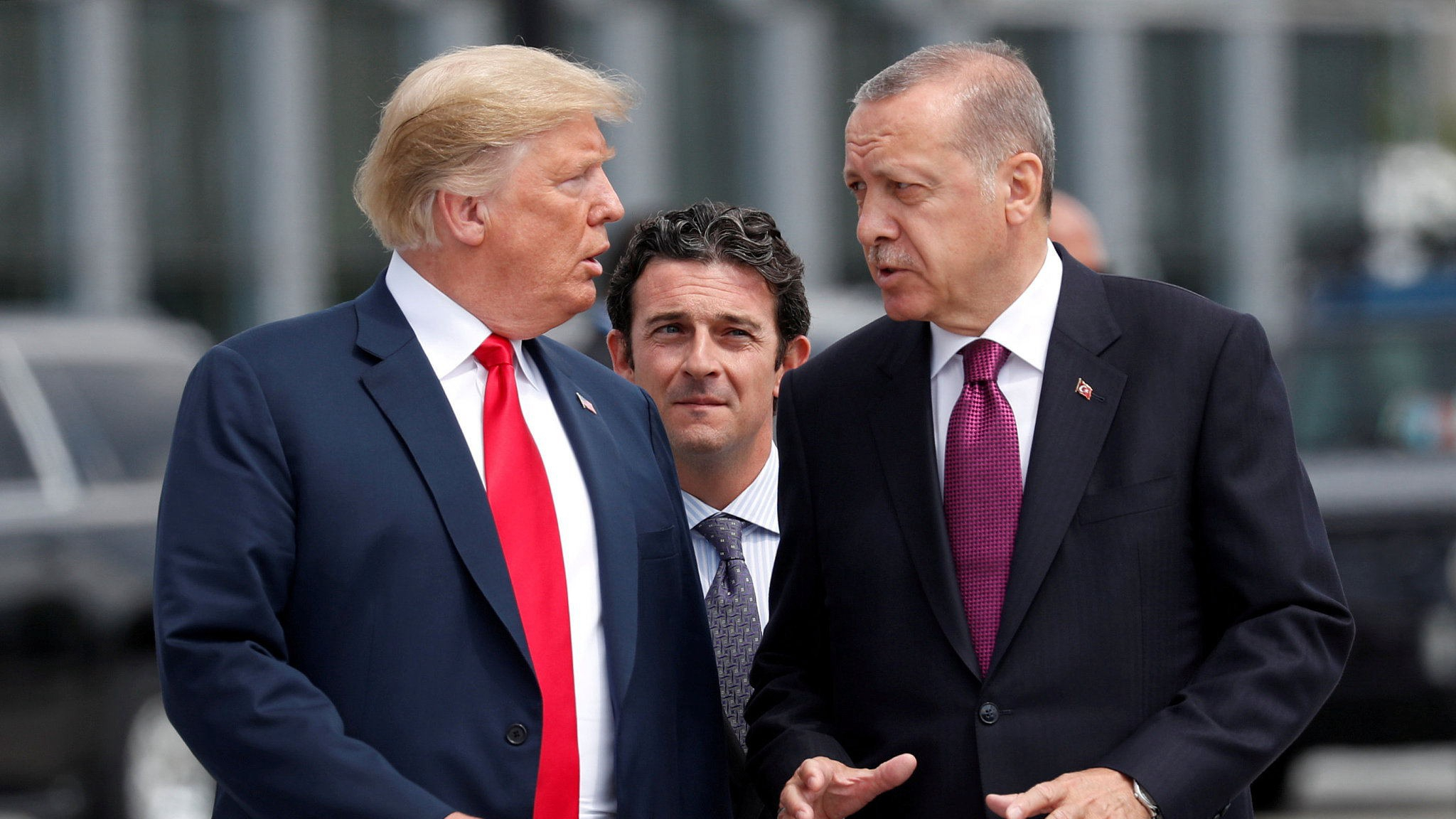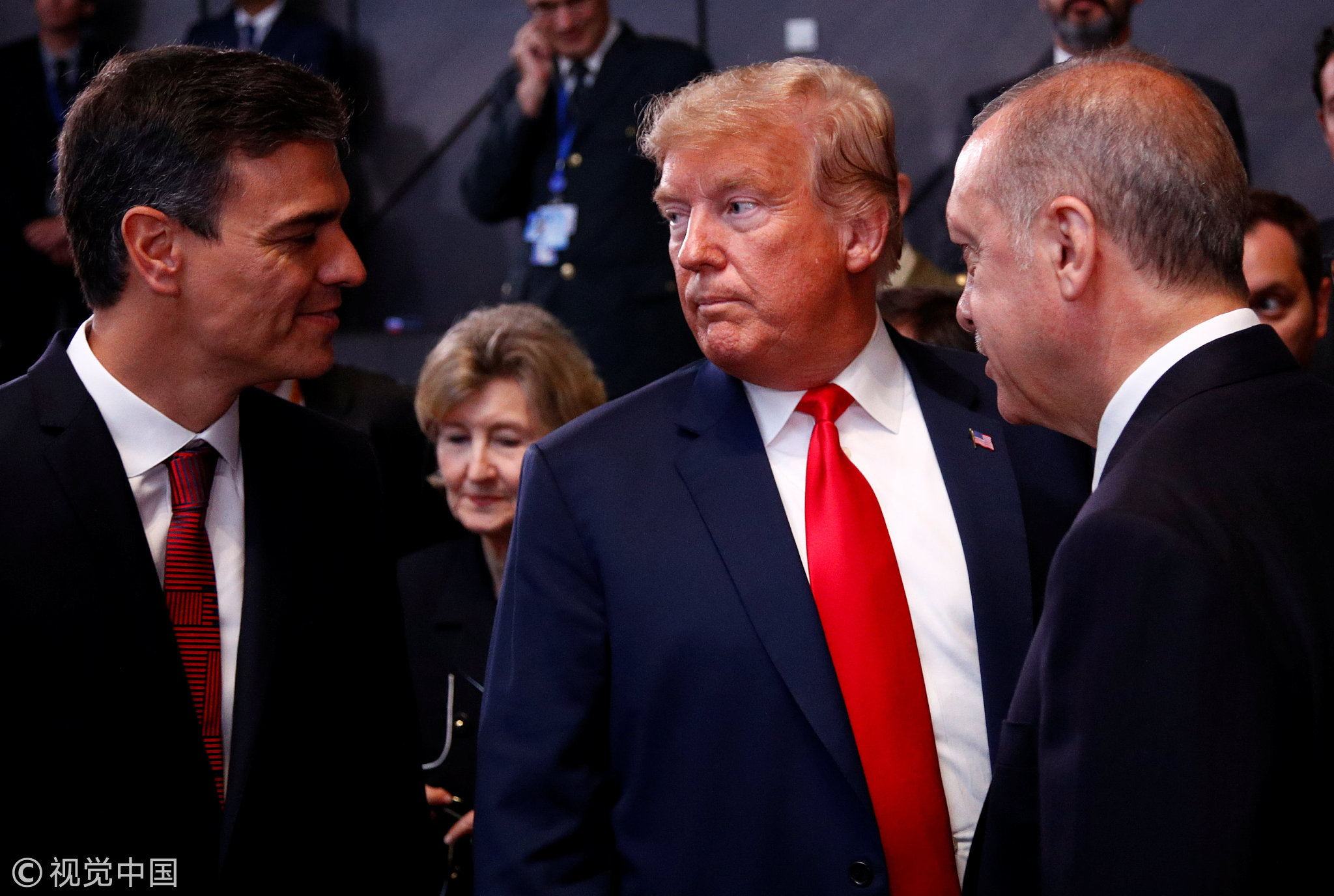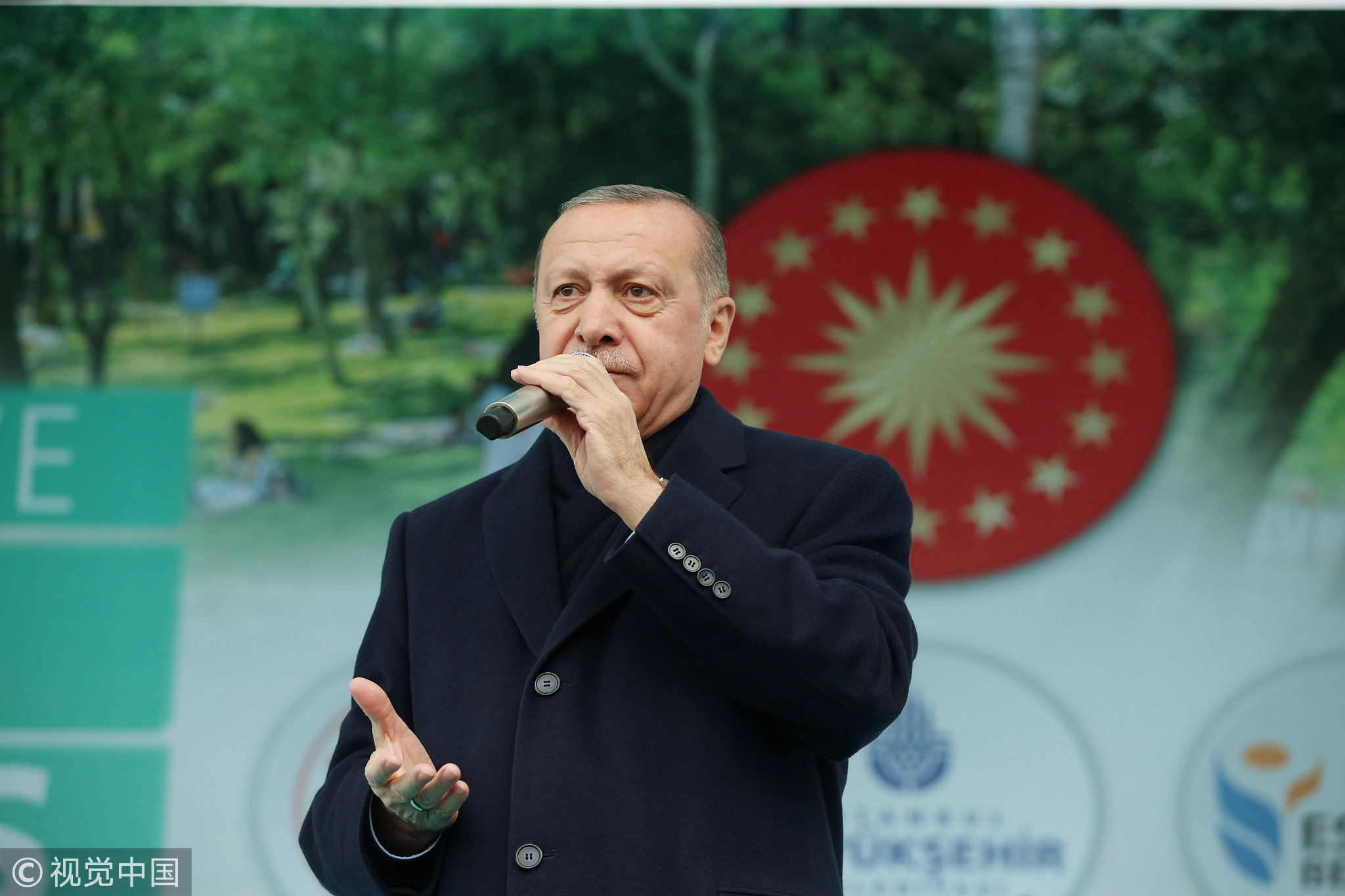
Opinions
23:13, 19-Dec-2018
Opinion: Ankara's victory over Washington, major or minor?
Updated
22:56, 22-Dec-2018
Wang Jin

Editor’s Note: Wang Jin is a research fellow at the Charhar Institute and a research fellow at the Northwest University of China. The article reflects the author's opinion, and not necessarily the views of CGTN.
Turkish President Recep Tayyip Erdogan is cheering his "diplomatic victory" over the United States.
Erdogan noted on December 14 that Turkey received "positive response" from U.S. President Donald Trump during talks over the phone about launching military offensive against Syrian Kurdish People's Protection Units (YPG) militia-controlled area in northern Syria.
On Tuesday, according to the White House, Trump told his Turkish counterpart that Washington "would take a look at" the possibility of extraditing Fethullah Gulen, a U.S.-based Muslim cleric that Ankara suspects of being behind the 2016 coup attempt.
These two issues, extraditing Fethullah Gulen and disagreements over the role of Kurdish Democratic Union Party (PYD) in Syria, are the major obstacles for the U.S.-Turkey bilateral ties. Turkey perceives that the PYD and its armed wing in Syria, YPG, have ties with Ankara-defined "terrorist group" Kurdistan Workers' Party.
Erdogan believes that Gulen and his Gulen movement in Turkey were behind the failed military coup in 2016, and has been demanding for the extradition of Gulen back to Turkey for a trial. Ankara maintains that the Gulen Movement has set up an independent network inside Turkey while its members, led by Gulen, have lurked into Turkey's intelligence establishments, police and justice departments, social media, education institutions, and other government offices.

Turkish President Recep Tayyip Erdogan, U.S. President Donald Trump, and Spain's Prime Minister Pedro Sanchez attend a meeting of the North Atlantic Council during a NATO summit in Brussels, Belgium, July 11, 2018. /VCG Photo
Turkish President Recep Tayyip Erdogan, U.S. President Donald Trump, and Spain's Prime Minister Pedro Sanchez attend a meeting of the North Atlantic Council during a NATO summit in Brussels, Belgium, July 11, 2018. /VCG Photo
These two issues point at the deeply rooted distrust and frictions between the U.S. and Turkey.
Ankara suspects the role of Washington in the failed military coup of 2016 and believes Gulen's supporters in Turkey received assistance from the U.S. intelligence agency.
Given the fact that Gulen himself has been living in Pennsylvania ever since 1999, Ankara strongly opposes Washington's "protection" of
Gulen and his supporters.
Gulen and his supporters.
Meanwhile, Washington perceives the PYD and its militant groups as important partners in Syria to prevent the expansion of local Islamic extremists. The disagreements over both the status of PYD in Syria and extradition of Gulen became very salient in U.S.-Turkey bilateral ties several months ago. In May, after Trump administration decided to move U.S. embassy from Tel Aviv to Jerusalem, Turkey blamed Trump's decision "violating international law."
In August, U.S. launched sanctions in an act of revenge and caused a serious devaluation of Turkish currency after Ankara rejected Trump's proposal of releasing the Turkey-detained U.S. citizen Andrew Brunson.
Under the strong pressure from Washington, Ankara released Andrew Brunson in October and the bilateral ties started to improve. After the Saudi journalist and critic Jamal Khashoggi was murdered in Saudi consulate in Istanbul, the relations between Turkey and the U.S. got closer given Turkey's investigation over the possible link between Khashoggi's murder and the Saudi government.

Turkish President Recep Tayyip Erdogan addresses his supporters in Istanbul, Turkey, December 16, 2018. /VCG Photo
Turkish President Recep Tayyip Erdogan addresses his supporters in Istanbul, Turkey, December 16, 2018. /VCG Photo
Given Trump's insistent defense of U.S.-Saudi relations and his family's business ties with Saudi royal family, it is very likely that Trump administration agreed to make concession over both Gulen's status and U.S.' supports to PYD in Syria in exchange of Ankara sealing the findings of Khashoggi.
However, Ankara's diplomatic celebrations on its "victory" over Washington might not be too optimistic, while Washington's concessions over both Gulen's extradition and its ties with PYD might not meet the demands of Erdogan and his government.
Fethullah Gulen has been living in the U.S. for nearly two decades and his connections with U.S. government, social groups and media might become an obstacle for Turkey's request of extradition.
Meanwhile, U.S. might give up the town of Manbij and persuade the PYD to stay in the east of Euphrates River of northern Syria, while Turkey may try to establish a buffer zone along the whole of Syria-Turkey border area.
For Washington, to give up PYD means to give up its interests in Syria, and Erdogan's ambition in northern Syria might be an unacceptable proposal for Trump.
Ankara takes the upper hand with its investigation over Jamal Khashoggi's murder. However, Washington's concession might be only partial and limited, and Ankara's diplomatic victory to Washington might be only a minor one, not major.
(If you want to contribute and have specific expertise, contact us at opinions@cgtn.com.)

SITEMAP
Copyright © 2018 CGTN. Beijing ICP prepared NO.16065310-3
Copyright © 2018 CGTN. Beijing ICP prepared NO.16065310-3